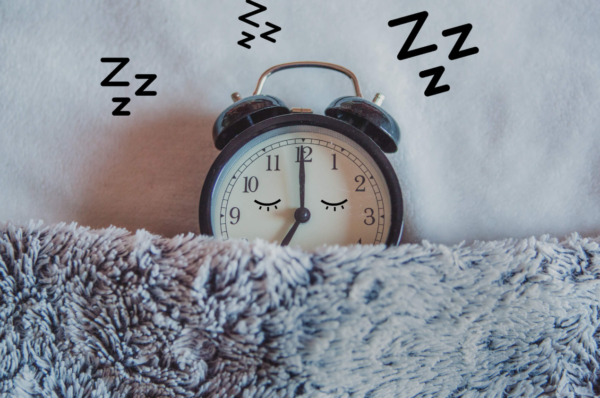By Payton Weaver
 Hey there, fellow sleep enthusiasts! Today, we’re going to embark on a wild and whimsical journey into the realm of sleep and its fascinating impact on our memory. Prepare for a dose of laughter, knowledge, and maybe even a yawn or two. So, grab your favorite pillow and let’s dive right into the world of slumber!
Hey there, fellow sleep enthusiasts! Today, we’re going to embark on a wild and whimsical journey into the realm of sleep and its fascinating impact on our memory. Prepare for a dose of laughter, knowledge, and maybe even a yawn or two. So, grab your favorite pillow and let’s dive right into the world of slumber!
Adenosine: The Sleepy Superhero
When it comes to the quality of our sleep, there’s one chemical superstar that plays a vital role: adenosine. Think of adenosine as the ultimate snooze button in your brain. It acts as a neurotransmitter and neuromodulator in the brain, influencing various physiological processes, including sleep homeostasis.
Adenosine levels in the brain increase throughout the day as a byproduct of cellular energy consumption. The longer we stay awake, the more adenosine builds up in our system. When adenosine binds to its receptors, it has an inhibitory effect on neuronal activity. It slows down the firing of neurons, leading to a decrease in alertness and an increase in sleepiness. The accumulation of adenosine throughout the day acts as a signal for the brain to initiate the sleep-wake transition. When adenosine levels reach a certain threshold, it triggers the release of sleep-promoting substances, such as melatonin, and promotes the transition into sleep.
Now, you might be wondering about the long-term effects of poor sleep quality on adenosine and overall health. Chronic sleep deprivation and disturbances can disrupt the normal adenosine cycle, leading to an imbalance in the sleep-wake system (Durmer & Dinges, 2005). This imbalance can result in decreased alertness, impaired cognitive function, mood disturbances, and an increased risk of various health issues, such as cardiovascular problems and compromised immune function.
So, the next time you find yourself struggling to stay awake or craving that cup of coffee, remember the little molecule called adenosine, silently orchestrating your sleep-wake cycle.
Beauty Sleep: Where Dreams and Memories Collide
Now, let’s talk about the magical relationship between sleep and memory. When we sleep, our brain is like a bustling theater, replaying the events of the day and solidifying them into our memory banks. It’s almost as if our dreams are the highlight reels of our waking moments, edited by the Sandman himself.
But beware, for poor sleep quality can wreak havoc on this memory consolidation process. Research suggests that sleep disturbances, such as insomnia or sleep apnea, can impair our ability to form and retain memories effectively (Stickgold & Walker, 2007). So, next time you find yourself tossing and turning, just remember that you might also be tossing and turning away those precious memories.
The Aftermath of an All-Nighter
We’ve all been there. That dreaded all-nighter fueled by energy drinks, desperation, and a sprinkle of procrastination. But what happens to our memory when we deprive ourselves of a good night’s sleep?
Well, prepare for the unexpected plot twist. Research suggests that sleep deprivation can impair not only our ability to remember new information but also our access to existing memories (Hale & Guan 2015). It’s as if our brain decides to put up a “Sorry, we’re closed for business” sign when it comes to recalling important details.
So, next time you’re tempted to burn the midnight oil, remember that a well-rested brain is a memory magician, while a sleep-deprived brain is more like a magician’s assistant who forgot the trick.
References
Durmer, J. S., & Dinges, D. F. (2005). Neurocognitive consequences of sleep deprivation. Seminars in neurology, 25(1), 117–129. https://doi.org/10.1055/s-2005-867080
Hale, L., & Guan, S. (2015). Screen time and sleep among school-aged children and adolescents: a systematic literature review. Sleep medicine reviews, 21, 50–58. https://doi.org/10.1016/j.smrv.2014.07.007
Stickgold, R., & Walker, M. P. (2007). Sleep-dependent memory consolidation and reconsolidation. Sleep medicine, 8(4), 331–343. https://doi.org/10.1016/j.sleep.2007.03.011

